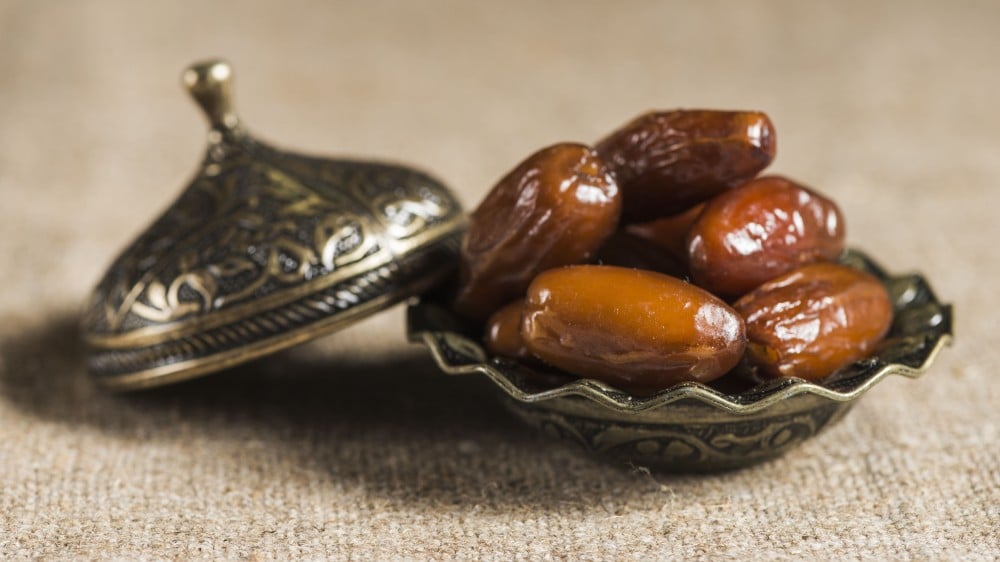Ramadan dates: to choose the best types and benefit the health of those who are fasting
Ramadan, a month of great importance in Islamic culture, is known for its rich traditions and spiritual practices, and at the heart of these traditions are dates, a fruit rich in nutrients and full of symbolism. Dates are one of the essential and indispensable ingredients at the Iftar and Suhoor table, as they begin breakfast according to the Sunnah of the Prophet. This article takes you on a journey to discover the best types of dates for Ramadan and how to benefit from them healthily.
The nutritional and health role of dates in Ramadan
Dates during the month of Ramadan are not just a religious tradition followed when breaking the fast, but they are also an excellent nutritional choice that provides many health benefits to those who are fasting. Dates are a rich source of fiber, which helps enhance feelings of satiety and improves digestion, which is essential after a long period of fasting. It also contains natural sugars such as fructose and glucose, which provide immediate energy to the body without causing a sharp and rapid rise in blood sugar levels.
In addition, dates are a good source of important minerals such as potassium, which plays a role in regulating blood pressure, and magnesium, which helps maintain muscle and nerve health. These ingredients make dates an ideal meal for those who are fasting, as they help avoid dehydration and maintain fluid balance in the body.
The role that dates play in boosting energy and improving control of blood sugar levels makes them an ideal choice for iftar and suhoor in Ramadan. These benefits help those who are fasting to feel active and energetic throughout the day, and give them the ability to perform their worship and daily activities efficiently and effectively.
The best types of dates for Ramadan
During the month of Ramadan, Muslims pay great attention to the quality of dates they consume, given their prominent role in the iftar ceremony. Among the most popular types of dates preferred in this holy month, Ajwa Al Madinah, Medjool, and Khalas Al Ahsa stand out as popular choices for those who are fasting. Each type of these dates has unique characteristics that make it special.
Ajwa Al Madinah is considered one of the finest and most famous types of dates, and is famous for its sweet taste and soft texture. They are known for their many health benefits, including disease prevention thanks to their high fiber and mineral content.
Medjool, also known as the “King of Dates,” is distinguished by its large size and dark color. It has a sweet taste and meaty texture, which makes it a favorite for many to eat as a snack or use in desserts.
Al-Ahsa khalas are prized for their unique taste and ease of digestion, making them a great choice for breakfast. It is characterized by its soft texture and distinctive flavor that satisfies various tastes.
When choosing dates, it is important to look at quality criteria such as ripeness, freshness, and freedom from impurities. It is preferable to choose dates with a soft texture and uniform color, and ensure that they are free of mold or excess moisture. Consumers should also look for reliable sources that follow proper production and storage standards to ensure the best quality. These dates are not only nutritious but are part of Ramadan traditions that enhance the feeling of belonging and closeness during the holy month.
How do fasting people benefit from dates?
Eating dates at breakfast and suhoor in Ramadan goes beyond being just an Islamic tradition to a scientific basis that benefits the health of the fasting person. When breaking the fast, eating dates provides instant energy to the body thanks to their high content of natural sugars, which helps avoid the exhaustion and fatigue that fasting people may feel after a long day of fasting. The fiber found in dates also contributes to improving digestion and enhancing the feeling of fullness, which prevents the fasting person from overeating after breakfast.
For suhoor, dates can be included in light, nutritious meals, such as yogurt with dates and nuts, or prepare date juices with milk for a balanced suhoor meal that provides energy to the body and helps to feel full for a longer period.
In addition, dates play an important role in maintaining nutritional and hydration balance in the body. Minerals found in dates, such as potassium, help regulate blood pressure and fluid balance, which promotes keeping the body hydrated during long hours of fasting. Incorporating dates into a fasting person’s diet is a smart strategy to maintain his health and activity throughout the holy month.
Creative ways to include dates in Ramadan meals
Dates, with their sweet taste and health benefits, offer endless possibilities for creating unique Ramadan recipes. Dates can be included in Ramadan meals in innovative ways that add a healthy and delicious touch to the food.
For a natural sweetener, dates are the perfect choice. They can be used to make **date maamoul**, where the dates are kneaded with a little butter and flour to form the rich filling used in this popular dessert. **Energy balls with dates and nuts** can also be prepared by mixing mashed dates with nuts and grated coconut for a nutritious snack.
In addition, dates are perfect for naturally sweetening Ramadan drinks. It can be added to a smoothie or milkshake to provide a sweet flavor and nutritional benefits without the need for added sugar. This method is not only healthy, but also enhances the spiritual value of food in Ramadan, honoring the body with beneficial natural ingredients.
In these creative ways, dates become more than just a traditional ingredient in Ramadan, but rather an essential ingredient in preparing diverse and nutritious meals that suit the spiritual atmosphere of the holy month.
Conclusion and general advice
At the end of our journey with dates in Ramadan, we emphasize their great importance as an ideal food for breakfast and suhoor, loaded with countless health benefits. We encourage readers to explore new types of dates and incorporate them into their Ramadan meals in innovative ways, to enhance their fasting experience with diverse flavors and beneficial healthy habits.
Dates in Ramadan are more than just a tradition; It provides those who are fasting with tremendous health benefits, including boosting energy, improving digestion, and providing essential nutrients. This wonder fruit represents a bridge between spiritual traditions and physical needs, making it an indispensable ingredient in iftar and suhoor meals. We encourage readers to explore the diverse types of dates available, allowing for the experience of new flavors and different health benefits. We also invite them to include dates in their meals in creative ways, not only to enhance the nutritional value of the food but also to renew the cultural and spiritual ties that unite us during this holy month. By adopting these healthy habits, we can all benefit from the profound values that Ramadan represents, while maintaining a healthy body and a reassured spirit.

